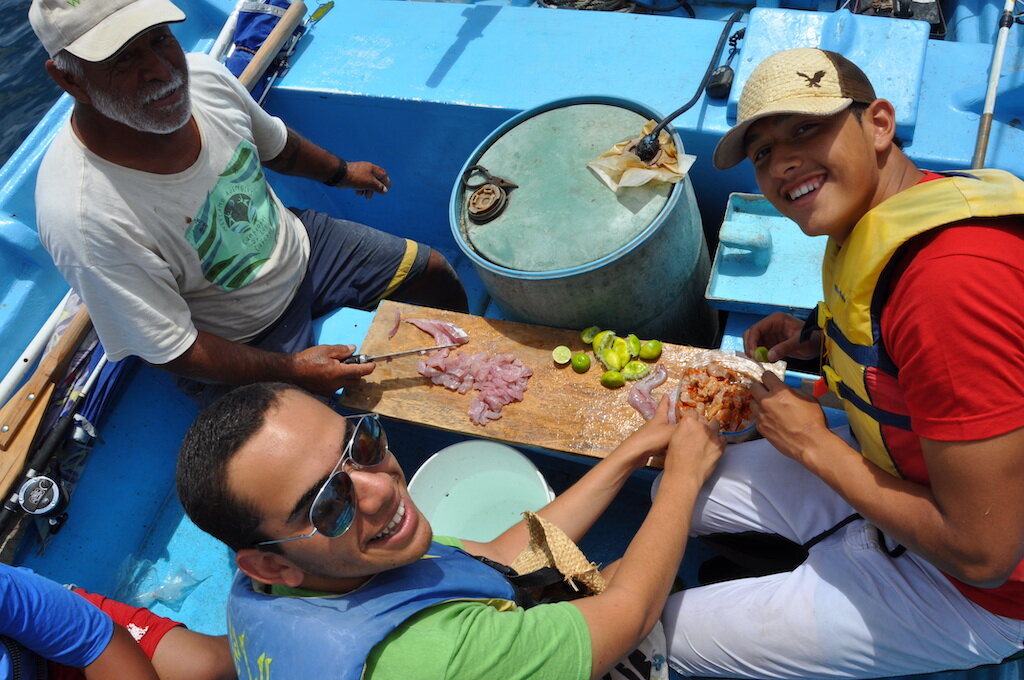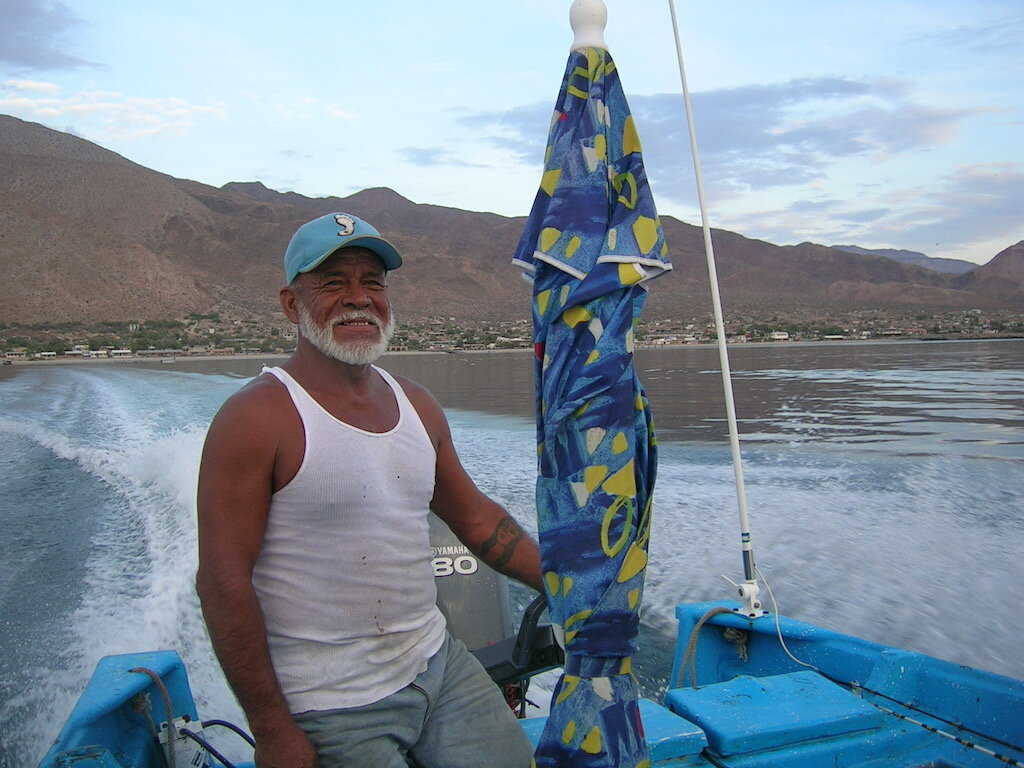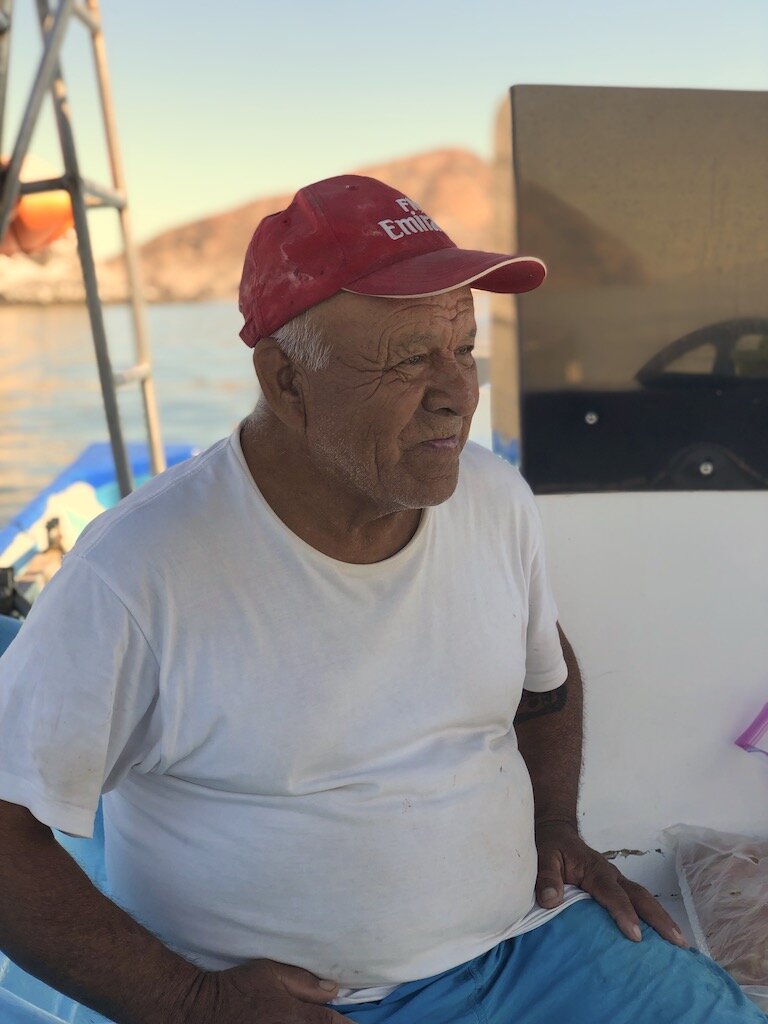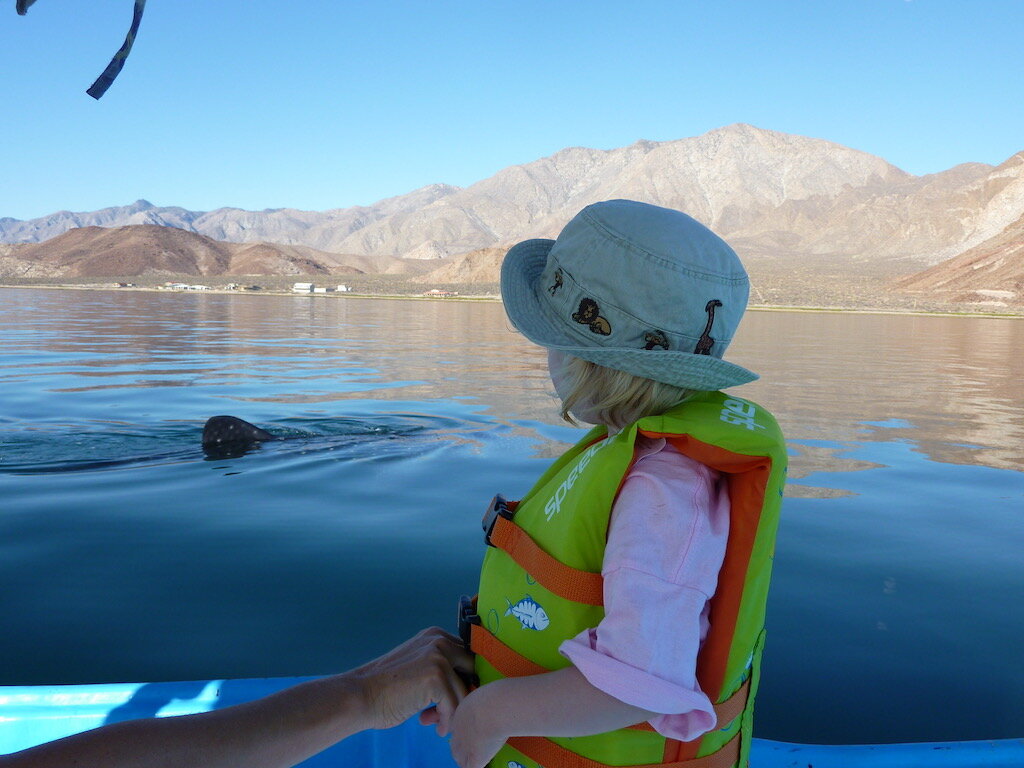One drawback of getting old is that we have to say goodbye to loved ones along the way. That really hit home when my friend and collaborator Martín Cortes passed away recently. When I think about legacies people leave behind, it strikes me that there are the ones that most people think about - acts of bravery; unraveling some mystery about the world around us; raising the next generation; or maybe inventing some idea or device that makes the world a better place.
But recently I been thinking a lot about the “invisible legacies” people leave behind - lives that we touch without us ever knowing how impactful sometimes seemingly small interactions become. For Martín, his legacy runs the full spectrum, from classically heroic (risking his life for others), to the more subtle, such as inspiring an appreciation for the world around us in others.
I met Martín in the summer of 2000, when I started research in Bahía de los Ángeles as a postdoc. Martín was a pangero in Bahía, and was the most talented boat driver and fisherman I have ever met. But that barely scratches the surface of what a phenomenal person he was.
When I first met Martín that summer, it was just a few months after the terrible accident in Bahía de los Ángeles that took the lives of Gary Polis, Takuya Abe, Masahiko Higashi, Shigeru Nakano, and Mike Rose. Martín had been on the water with Gary the day of the accident, carrying half of the research crew on a small panga that, thanks to his skill and experience, made it back to shore in the sudden, violent windstorm that claimed those lives. Not only did Martín manage to bring his passengers back to shore, but he went back out into the storm, *twice*, to try and find survivors, despite the risk to his own life.
Martín was quiet, calm, and unflappable. It was always tough to guess how old he was - it turns out in his 50s back then, but with his muscular frame and ease of handling intense work for hours on the boat in >100° heat, he had the energy of someone literally half his age. He was taciturn, but laughed and smiled easily.
I have 20+ years and a heart full of stories about Martín, but wanted to share a couple of them here, mostly to memorialize them for myself, but also just to give a tiny insight into how wonderful Martín was, and why he will be so missed.
First, his work as a fisherman. We still use fish as bait for our pitfall traps, as Gary had since the late 1980s. It was not at all unusual for Martin to catch 20+ legal-sized fish **in an hour** to help us with our work. That means there were times when, in a single hour, he would catch almost enough to get us through the entire summer of sampling. But he also showed a rare compassion for the fishes - he was careful to release unharmed any that were too small or an unusable species, and those he kept he would be sure to kill before cutting them up for bait or food - something I rarely see fishers concern themselves with. And he was careful not to waste anything - he would use any “extra” or particularly tasty fishes to make ceviche, or to use for his own meals at home, or to share with townspeople who did not have the access he did to fresh fish. In this way Martín not only played a key role in groundbreaking science, but also in his community.
He also touched so many lives with these simple, kind acts. Through the years, countless scientists, and students from Ocean Discovery Institute were exposed to Martín’s kindness, and got to revel in some of the freshest ceviche anyone has ever enjoyed. Often, when asked about their fondest memories from research in Bahía de los Ángeles, Martín and his ceviche was prominent among them.
Martín was benevolently amused with our naïve gringo antics. On one trip to the midriff islands, where we spent a few days camping to complete our sampling, we all decided to stop in the geographic center of the Gulf to go for a swim. While we were in the water, Martín pointed out that there were a lot of sharks in the area that feed one sea lions, and as we made our mad dash to get back on the panga, he just kept shaking his head and laughing quietly.
Martín had not had an easy life, but I never once heard him complain. He would often remark that there was no time when he was happier than when he was in Bahía de los Ángeles and on the water. Even when he went through a rough period, where he was living essentially outdoors, sleeping on an old car seat, his demeanor didn’t change in the least. He ended up finding comfort and support in the church, and while we were on the islands doing work, he would spend his time on the boat, reading his bible and singing hymns.
These last 10 years our so, Martín had a place he stayed in town that was an abandoned concrete building, with a bed, an old wooden table, a stove, and a refrigerator. His health was not great - his knee really needed replacing; he struggled with prostate cancer; and he broke a vertebra while working on a boat in rough weather. He somehow managed to keep working. He built crutches out of discarded parts and PVC, he devised a clever set of pulleys and ropes that allowed him to get in and out of bed, and every time I saw him, his response to “how are you doing?” was always “when I see you walking down the beach, I feel that god has blessed me”. That was always followed with him asking about Paco Piñero and Gary Huxel (my friends and collaborators), and about Theresa and Anna.
The last time I saw Martín, shortly before the pandemic hit, I had dropped by his place to say goodbye before leaving town. I had to keep coming back, because despite his age and health, Martín was out late at night taking some tourists fishing. When I finally caught him home, he was sitting in the sweltering heat at his rough wooden table, using the light of a small lantern to go through a well-worn copy of the Bible, making extensive notes in the margins. We chatted for a while, talked about the weather (a very popular topic in Bahía de los Ángeles), and made plans to get together in the spring. Unfortunately, the pandemic hit, and Martín passed away before that could happen.
Martín made the world a better place. His legacy includes so many people who he affected that he undoubtedly never even knew he influenced. He will be greatly missed, but his impact goes on.




